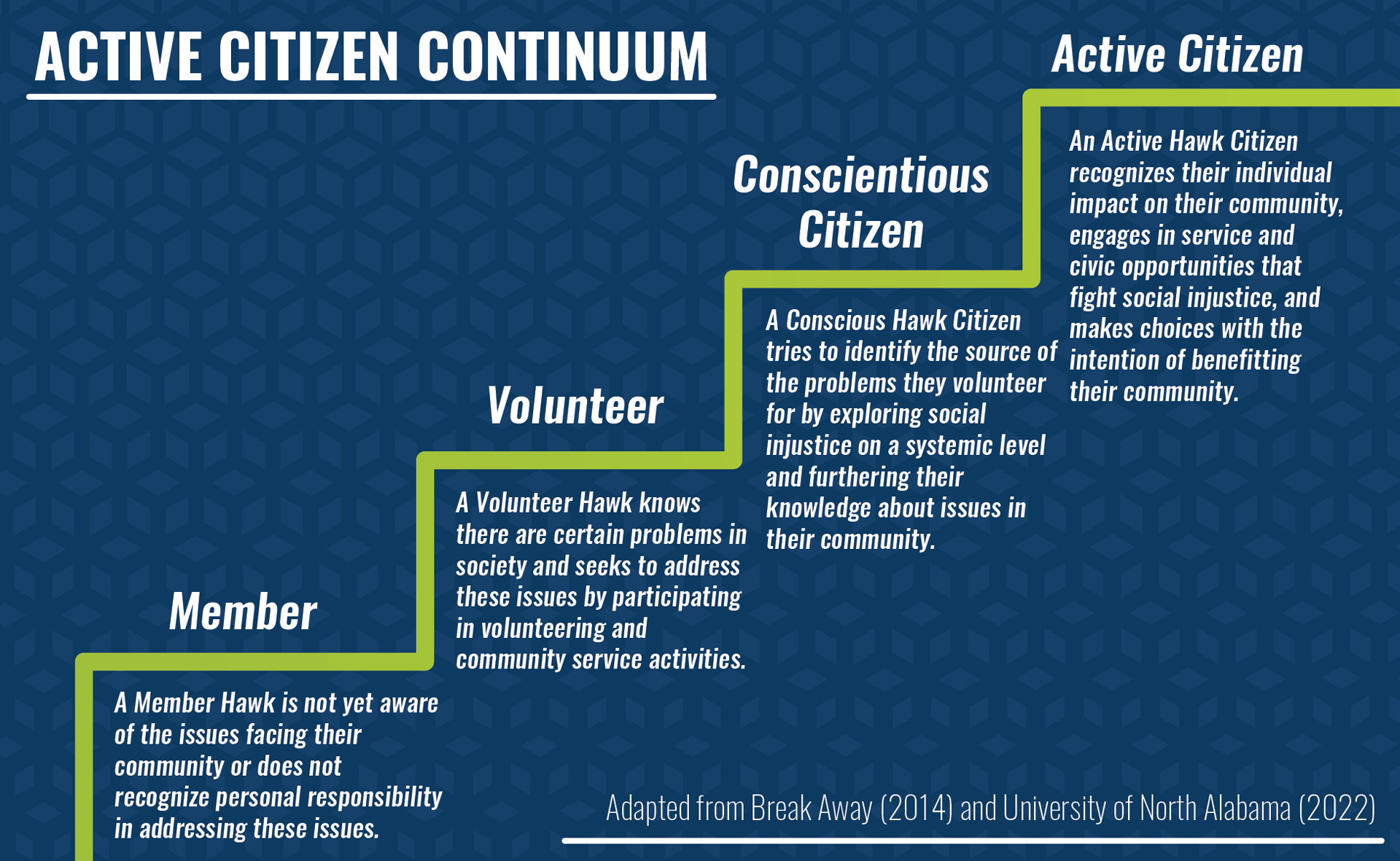
Our Philosophy
The Office of Student Involvement and Leadership knows that community participation is vital to growing as a leader. We help students, faculty, and staff get involved in the community, and encourage them to become active global citizens through service learning, civic learning, and voter engagement.
Active Citizen Continuum
We aspire to develop students from members of society to volunteers and critical thinkers who analyze the world around them and embrace a community mindset. Following the Active Citizen Continuum (below), we seek to engage students as active citizens and servant leaders.

Member
A Member Hawk is not yet aware of the issues facing their community or does not recognize personal responsibility in addressing these issues.
Volunteer
A Volunteer Hawk knows there are certain problems in society and seeks to address these issues by participating in volunteering and community service activities.
Conscientious Citizen
A Conscious Hawk Citizen tries to identify the source of the problems they volunteer for by exploring social injustice on a systemic level and furthering their knowledge about issues in their community.
Active Citizen
An Active Hawk Citizen recognizes their individual impact on their community, engages in service and civic opportunities that fight social injustice, and makes choices with the intention of benefiting their community.
Goals
Our programs and services provide Hawks the opportunity to:
- Cultivate relationships with community organizations.
- Develop a practice of critical reflection.
- Become more socially and globally-conscious members of the community.
- Recognize personal and community values, and a sense of social responsibility.
- Hone leadership and professional skills for career-readiness and community impact.
- Become more connected to UHCL and the Hawk community.
Theoretical Foundation
Using guiding theories of student learning and leadership development, as well as our institutional and divisional philosophy of higher education and service, we affirm that:
- Individuals do not live in isolation, and are part of a community – organizational, institutional, local, cultural, or global.
- Leadership is a process of individuals coming together to impact change in their communities (Skendall, 2016).
- Community participation, including volunteerism, voting, civic learning, and other activities, should be aimed at impacting social change.
- Community participation allows leaders to recognize the collaborative role of leadership (Komives et al., 2007).
- Community participation serves as an experiential learning opportunity that promotes student growth and learning (Kuh et al., 2008).
Relevant Citations
- Komives, S. R., Lucas, N.J. & McMahon, T.R (2007). Developing a leadership identity. In Exploring leadership: For college students who want to make a difference (2nd ed.) (pp. 385-409). San Francisco, CA: Jossey-Bass.
- Kuh, G. D., Schneider, C. G., & Association of American Colleges and Universities. (2008). High-impact educational practices: What they are, who has access to them, and why they matter. Washington, DC: Association of American Colleges and Universities.
- Skendall, K. C. (2016). An overview of the social change model of leadership development. In S. Komives and W. Wagner (eds.), Leadership for a better world: Understanding the social change model of leadership development. (pp. 17-40). Hoboken, NJ: John Wiley and Sons, Inc.






